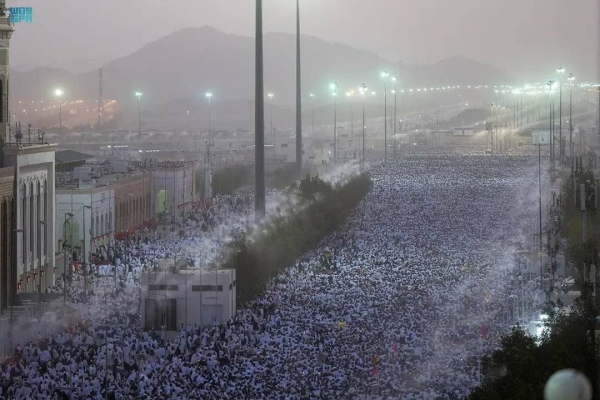
The decision to severely restrict this year’s pilgrimage has badly affected nearly 5,000 small businesses in Karachi alone
Almost 180,000 Pakistanis planned to take part in the pilgrimage; the nation’s Hajj industry is worth an estimated 160 billion rupees ($1 billion)
KARACHI: Each year in the run-up to the annual pilgrimage to Makkah, hundreds of Pakistanis visit Shaikh Rafi’s store on Karachi’s busy M. A. Jinnah Road to buy prayer mats and ihram clothing, the two seamless pieces of cloth that Muslims wear during Hajj.
But not this year. Since the announcement last month by Saudi authorities that Hajj would be limited to a few thousand pilgrims who reside in the Kingdom, to prevent the spread of the coronavirus, Rafi has spent his days dusting off unsold goods as he waits anxiously for customers who never arrive.
“This has been our routine for the past couple of months,” said Rafi, whose store is in Karachi’s Allahwala Market.
The plans of about 2.5 million Muslims around the world were upended when this year’s Hajj was scaled down dramatically. In Pakistan, almost 180,000 people had their trips canceled, and the effect on the country’s 160 billion-rupee ($1 billion) Hajj industry has been devastating. Rafi’s store is just one of at least 5,000 small businesses in Karachi that have been badly affected.
“Since the decision by the Kingdom to suspend Umrah flights and limit Hajj, almost all related businesses are experiencing reduced sales,” he said. “We open our shops expecting that someone might come but the day ends with no customers.
Wholesaler Muhammad Rizwan said: “In normal circumstances, people used to buy prayer rugs and caps, before or after performing Hajj or Umrah, as gifts for their relatives and friends — but since the lockdown, the industry has completely shut down.”
Traders say it is not only the lack of sales that is causing problems, but also delayed payments.
“There has been no business for about the past five months and our payments from retailers and shop owners who buy on credit have been held up,” said Muhammad Hanif Katlia, a wholesale supplier of ihram clothing. “Many shopkeepers have defaulted (on their bills) and have not paid rent, and many have fled without paying what is due.”
Some factories that produce goods for the Hajj and Umrah industry have been force to shut down completely, costing jobs, while others have switched to manufacturing other items.
“Production has been stopped for the past five months and we have laid off workers,” said Jannat Gul, whose business manufactures ihram clothing and other Hajj-related products. “There is no buying and selling, and borrowers have not been paying back what they owe since Umrah was suspended due to coronavirus.”
This year is the first time in the modern era that pilgrims from other countries are not allowed into Makkah. According to Pakistan’s Ministry of Religious Affairs and Interfaith Harmony, which oversees the nation’s Hajj arrangements, 179,210 Pakistanis had registered to attend this year: 71,684 with private tour operators and 107,526 through cheaper, government-supported packages.












